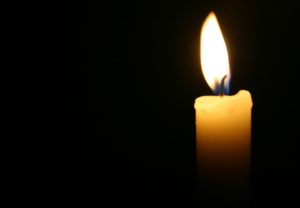
Blue Christmas
The weirdness of the year has disrupted more than our worship, making this a harder Christmas than many – and Christmas is already hard for a lot of people.
This quiet prayer service offers a chance to escape the Christmas cheer and lay our struggles, sorrows, and fears before God.
Join us on-site by registering here. Please read our on-site service precautions before coming.
A modified version of this service, suitable for personal use, will also be available as a recording on Dec 22. You will find it on our Youtube channel and Facebook page.
The Booklets
Whether you decide to join in the Zoom prayer service or to have a private home service, a little preparation will help you enter into a sacred time and space.
Follow along with our Blue Christmas service using our Worship Booklet, which incorporates readings and hymns. The .pdf format allows easy scrolling on smartphone screens.
To obtain a printable booklet, contact office@churchoftheascension.ca.




